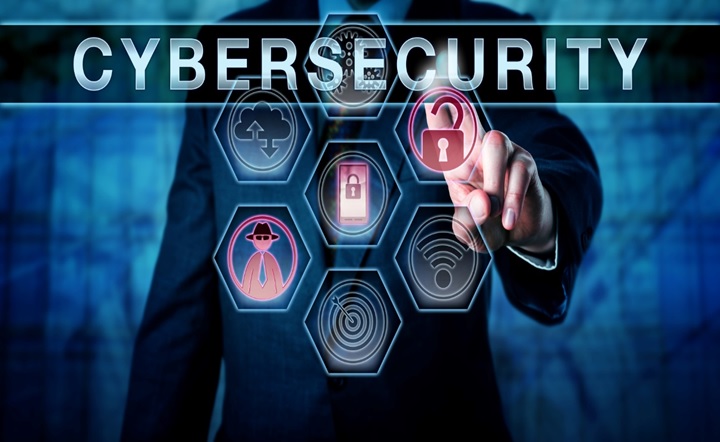Although we’re a couple of decades into the digital age, businesses still rely more heavily on their data every year, which makes it more devastating when that data is compromised. Well, it may surprise you to learn that the average business takes over 6 months to notice a breach occurred.
A lot of damage can take place in that time. Luckily, if you’re a small business owner, there’s a lot you can do to protect your company’s data. Let’s talk about some of the most important cybersecurity tips for 2022.
Why Cybersecurity Tips are So Important Right Now
Let’s quickly go over some important trends in the world of small business cybersecurity. We’re currently entering 2022 and if you’re running a business, there’s a lot you need to know.
First, cyberattacks are on a sharp upward trend. If you haven’t begun investing in cybersecurity yet, now is the time to start taking it seriously.
By September of 2020, cyberattacks had already surpassed the previous year’s total by 17%. Think that’s bad? Well, Q3 of 2021 saw more attacks than Q1 and Q2 combined, demonstrating a serious upward trend in attacks.
Next, cyberattacks are also costing businesses more money. We all heard about the Colonial Pipeline, but there were others that cost similar amounts of money that didn’t get the same media attention. However, there were massive companies with extensive resources.
Well, these effects are even worse on small businesses, and far more common. The SEC estimates that around half of small businesses go out of business within 6 months after a cyberattack, and that’s only getting worse.
Unfortunately, the increase in attacks is the new normal, and not enough businesses are investing in the infrastructure they need or following general digital hygiene guidelines at the level needed.
Not only that, but attacks are becoming more sophisticated, more effective, and more costly to business owners. These trends are here to stay through 2022, so now is the time to pay attention. Here’s what you can do to protect your business.
- Understand Digital Hygiene
In order to implement the right protocols, we must first understand what the term “digital hygiene” means for your company. It’s a term used in the IT industry for following the best practices related to your network and data.
Practicing the right digital hygiene protocols means more than simply changing your passwords (which you should do). To understand why digital hygiene is so important to preventing cyberattacks, you first need to understand how breaches happen.
The reason small businesses are more susceptible than individuals is that there are more entryways for criminals and a higher reward for entering. Essentially, there’s more money to be made, and there are more devices in the same network, which only makes it easier.
Moreover, when your employees use secured work computers that follow all of the right protocols, your network stays fairly secure. However, if one employee jumps on the network with their unsecured smartphone or personal laptop, criminals now have an entry to your entire network.
If you want to practice proper digital hygiene, you need to look at it from the bigger picture. Every moving part within your network needs to follow the same standards as the rest if you want to keep your data secure.
- Practice Good Remote Digital Hygiene
Chances are that your company, like many, has at least some employees working remotely or in a hybrid setting. If so, then there’s a lot you need to know. The best practices are different when there are dozens of moving parts in different locations.
Use a VPN
Virtual private networks (VPNs) are very handy when employees aren’t working under the same roof. Your employees will all be able to operate under the same network from any location, and you can control the network settings they use remotely.
The best part about VPNs is that you can change them whenever you want, which severely limits hackers’ abilities to breach the system. A VPN is easy cybersecurity for businesses.
Use Work Computers
If possible, have your employees use work computers even at home, as this will ensure that you have control over the equipment your employees use. Alternatively, you can use a remote desktop application along with a VPN so hybrid workers can pick up where they left off between the office and home safely.
Secure File Sharing
Secure file sharing is critical in a remote or hybrid work setting. Your data is most susceptible to breaches during transport, so using an encrypted file sharing method is highly recommended.
Two-Factor Authentication
In general, two-factor authentication is always best practice, but especially when working in completely scattered places. If you’re trying to open files at home you were using in the workplace, you want to prevent criminals from doing the same.
Two-factor authentication works in several different ways, but any solution is better than simply using one. It may use biometrics and a 4-digit pin or a password and an email verification code. Either way, that’s difficult to replicate for a hacker.
- Update Your Software
We know it’s annoying that your web browser requires updates so often, but they are for your protection. Cybercriminals quickly adapt to new security measures that browsers have in place. This creates a constant struggle between the software companies looking to protect their customers and the criminals looking to infiltrate their devices.
Consequently, the best thing you can do is to update your software regularly, across all work computers or any device connected to your network. If your employees are remote, encourage them to set up automatic updates on their browsers and other internet-based applications.
- Educate Staff
None of this information will go to use if your staff aren’t on board with what you’re doing. All employees handling sensitive data need to be aware of changing practices and how they can help with preventing cyberattacks.
Social Engineering
Most importantly, your staff needs to understand social engineering or phishing scams. The technology used for phishing scams is becoming more advanced by the minute, especially with the rise of deep fake technology. This makes it far more challenging for the average person to recognize and prevent attacks from happening.
Social engineering attacks are when a cybercriminal uses psychological manipulation to access a network or convince somebody with access to perform a specific task. These attacks range from the poorly done “Hi, I’m a Nigerian prince” to deep fakes pretending to be coworkers, clients, or employers.
Your employees should know about these types of attacks, how to avoid them, and what to do when they receive a suspicious email or prompt. There are plenty of outlets to report phishing scams, but there should also be an internal protocol in place for employees to follow.
Network Security
If you’re working in the building, offer an additional “guest” WiFi for staff to use for their smartphones and personal devices. If you’re using a VPN, ask them to only use work devices or a singular (secured) device for work purposes.
Password Protocols
Have your staff use strong passwords on everything business-related and change them regularly. Passwords should always have a mix of capital and lower-case letters, numbers, and symbols, and they should be changed every 3 to 6 months.
Also, ensure that your employees know to never share passwords with each other or anybody else. We recommend your company should have a zero-tolerance policy for sharing passwords, as that puts company data at unnecessary risk.
- Always Back Up Files
Cybercrime isn’t the only threat to your data. You need to have your data backed up in case of a computer malfunction, fire, water damage, or anything else. However, you don’t want to leave your files open to threats.
With the rise of cloud solutions, it’s easier than ever to back up your files and access them when and wherever you need them. No, we aren’t trying to sell you any cloud storage, it’s just that great.
Unlike hard drives and other means of backing up files, the Cloud lets you access your information from anywhere and encrypts everything. Just ensure you choose a system that uses two-factor authentication for extra security.
- Encrypt Everything
Encryption is not perfect, but it is the best defense we have against cyberattacks, which is why so many criminals turn to social engineering. Awareness of phishing scams and all-around encrypted data is enough to keep the majority of cybercriminals at bay.
We mentioned encrypting your file-sharing method, but down-the-line encryption is the best practice. Your computers, backup files, messaging, and networks should be encrypted. Also, firewalls are a handy tool to use on your network and other infrastructure.
- Don’t Forget About Physical Theft
If you do use hard drives or store any data on your physical computers, then don’t forget about physical theft. Always lock your doors when out of the office and keep external hard drives protected.
Of course, relying on cloud storage is a better option, but if you insist on using physical copies, keep them protected.
- Use Updated Anti-Malware Software
Anti-virus, anti-malware, and similar software play a major role in preventing cybercrime. Viruses can be picked up anywhere and once it’s in your network, it can do a lot of damage.
Always use the latest software, opt for automatic updates, and run regular checks on all computers in the network. Encourage your staff to do the same, especially if they’re working from personal devices.
- Have a Disaster Relief Plan in Place
No matter how great your digital hygiene is, if a cybercriminal really wants to target your company, they might find a way. In that case, your business needs to have a plan for recovery.
First, breaches are devastating to businesses, so you need to have a financial recovery plan in the event your company loses significant money due to the breach. Next, you need a protocol for contacting the appropriate authorities and alerting them of a breach.
From there, you need to have a plan for addressing your customers, members, employees, shareholders, or the public. Anybody whose data may have been compromised needs to be alerted right away.
Of course, preventing this at all costs is worth any effort or dollar spent, but it’s good to have a plan just in case.
- Get Professional Help
Honestly, the best way to protect your data is with the help of professional IT support. Like it or not, cybersecurity is now an integral part of running a business.
There’s no substitute for dedicated cybersecurity professionals looking after your business’s most valuable assets, and there’s never been a better time to invest in extra help.
Also, professional IT services will help your business perform everything mentioned above, including developing a disaster relief plan for your company. In a world where cybercrime is on the rise, experienced IT teams are worth their weight in gold.
- Audit Your Performance
Looking at everything on this list, you now have a better understanding of how your business should protect its data. Using that information, give your own company a performance audit to see how it holds up to these standards.
Of course, cybersecurity professionals can do this for you. However, using this information, take a hard look at the current practices of your company so you can get a better idea of how to strategize and make the necessary adjustments moving forward.
Put These Tips to Use!
Now that you know some of the most important cybersecurity tips, this knowledge needs to be put to use sooner rather than later. Cyberattacks take place every minute of every day, and your business could be next if you don’t take care of it! Stay up to date with our latest business news and feel free to contact us with any questions!

